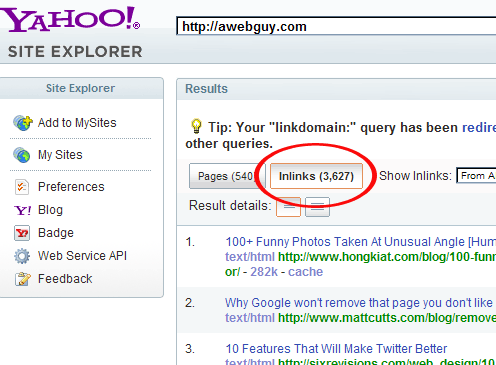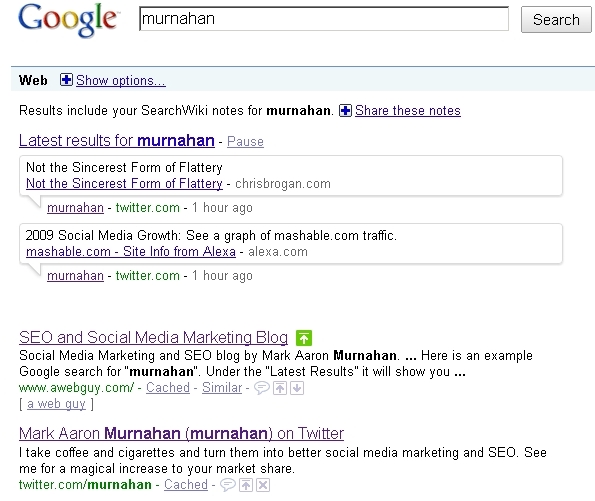
Backlinks are massively important to SEO because they reflect a consensus that your Website is either great, or it is not. Most people know that it is important to have a lot of links pointing back to their site, and some even know why … but few really understand how. I will draw this out for you and explain just why most SEO really stink at backlinks. Unless you settle in for a good read, right now, you will miss a huge lesson in SEO that you should know before you spend another cent. Get comfortable, because this is information that will benefit your business.
Most SEO Are Clueless About Backlinks
Most SEO fail at link building, and there are a few good reasons. Yes, I said most, and I mean it. Most SEO are failing at this one singular most measurable task that will make the difference in everything from customers finding your Website, to your Website conversion. The troubling thing to note is that they will often not tell you about it, and worse yet, they don’t even have a clue why they are so awful at it.
First, I will explain the couple of terms I use here and how they work for you, since I know everybody is not totally into SEO the way I am. SEO stands for search engine optimization (interchangeable with search engine optimizer, like me).
SEO is a whole lot more than just making sure you are at the top of the list when people search for what you offer. It goes much deeper, and it has a whole lot to do with another important and misunderstood term. Conversion! Oh, you’ve heard the term, right? In my most simple way of explaining conversion, it means converting searchers into clickers, clickers into buyers, and buyers into raving fans who will take your business to a totally different playing field. Conversion does not mean you conned another sucker into buying your stuff! Conversion could be said to mean that you are converting your business from an “also-ran” to the lead in the race.
Link building, as I am discussing it here, does not mean asking your cousin Sally to add a link to your site about insurance from her site about landscaping. When I say link building, I mean valuable, sustainable proof that you are serious about your business and that other people recognize this fact.
SEO Often Lie About Backlinks!
Now for backlinks; a backlink is what you have when somebody links to your site. It seems simple, right? Every joker who sends you an email offering to sell you backlinks for $49 knows that term. It means a squillion people will come flocking to your Website and enter their credit card number to snatch up your massively important stuff before you change your mind and raise the price. Yeah? Well … NO! This is the way a lot of SEO will explain it, but then, people lie … even on the Internet. By the way, why are they emailing, and why do their Websites never have more than a couple backlinks? I actually think it is not always just a mean-spirited lie, but more because they see this huge market and they are desperate to grab their piece but not willing to learn before they sell it to you. They are trying to earn as they learn, and the customer is often a victim.
Build Backlinks With Talent and Trust
When you have quality backlinks it tells Google and other search engines that others place a trust in you and they like your site. It is a democratic process. It is often faked, just like any other democratic process, but what sets you apart is that you are up for re-election today, tomorrow, and every day. Your business cannot afford to mess this up, and a bad fake in this democratic process can get you banned from search engines and waste a whole lot of your money. The biggest portion of the cost is the money you didn’t earn because you were wasting time with what did not work and your competition got the business.
If you take a creative and well-considered approach to your business and your Website, backlinks are simple. I never asked anybody to link to this site … not even once. I did not have to. I provide information that people want and can use to their benefit. People link here because they trust the content and they believe that others can benefit from it, too. This is the mentality it takes to build backlinks that matter. This is the kind of backlink that is relevant to those people looking for you, and a whole lot more likely to give you that conversion you are seeking. It is the kind of backlink that the SEO who sees you as a meal ticket will never create, because their mind simply does not work that way.
Trust and familiarity can build a whole lot of backlinks. Branding takes time and it takes purpose. When you do it right, you build great relationships. Here is an article that explains the difference that trusting relationships make in SEO and social media marketing: “How the Big Dogs Get Paid”. Have a little faith. I would not link to it if I didn’t think it would benefit you.
How SEO Sucker People: A Simple Explanation!
How does this happen that SEO sucker people out of their money? It is another blog post all together, but it is too commonly because the nature of need, greed, and fear tells people that they should seek the lowest cost in their business. They are out to make money without spending money. They want what sounds great, but for the lowest upfront expenditure. The first SEO to claim that they can do all that those other guys do for a fraction of the cost gets the money. What you should consider is that old saying that you get what you pay for. I would add that sometimes you don’t even get that.
If you are needy, greedy, and scared, do not cry to me or the other SEO who take the job of marketing your business seriously. Until you can get over the anxiety for grabbing fast money from the Internet, you are probably not ready for SEO performed correctly. If you take your business seriously and consider the importance of doing it right, the backlinks will come effortlessly.
Summary of SEO Backlinks
This little observation of backlinks explains a lot of reasons that when somebody asks me (as they often do) “What is your hourly rate for SEO?” I explain that they are asking the wrong question. The cost of SEO does not boil down to hourly rates for SEO or even how much money you wave goodbye to upfront. It comes down to how you look at your business and whether you only plan for tomorrow or plan to take your business to the head of the race. If you want to know my hourly rates, just Google it. If you want some free SEO lessons, go ahead and Google SEO lessons and find out if those backlinks I write about really matter.
If you want it done well, stop and think about these things and bring your lunch money. Doing SEO well does not mean doing it cheap. Real SEO means that you are in business and that you can swim with the sharks, and not that you are just willing to test the water.
